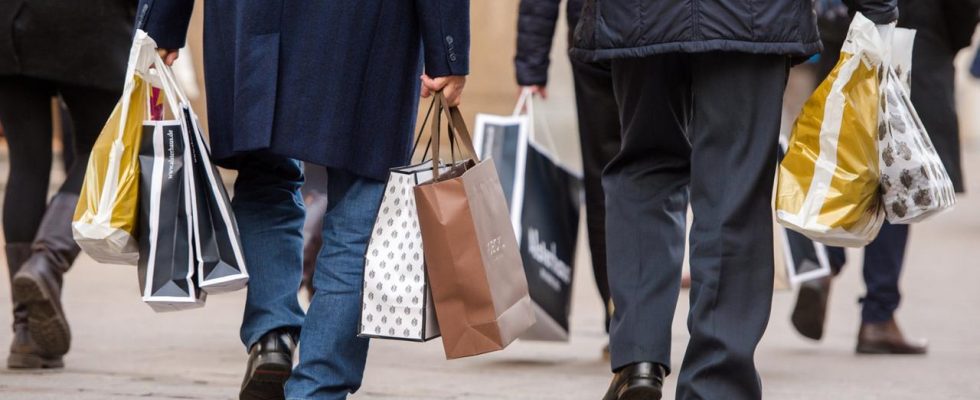Consumption as a support for the economy is currently failing: German citizens are currently holding on to their money and the mood to buy is hardly improving. This also has to do with the concerns of many people.
This resonates: Economics Minister Habeck commented last week that the federal government had to officially lower its forecast for German economic growth for this year from 1.3 percent to just 0.2 percent: “That’s really dramatically bad. It’s not year. We had minus 0.3 percent before, now we have plus 0.2 percent. We can’t continue like this.”
The German economy ended last year in recession. In 2024, many economists expected, things would pick up significantly again. But now there is disillusionment. Some economists are no longer ruling out the possibility that the German economy could end in recession again this year.
Rising wages, falling inflation
The lifeline that economists at the Bundesbank and the Federal Government, among others, have identified: private consumption. The Germans have more money in their pockets again, says the Economics Minister: “The collective agreements have contributed to this, but also a number of political measures, such as increasing child benefit and tax relief.”
In addition, inflation is falling. The result: The bottom line is that so-called real income has recently been rising again. The hope is that if more money is brought into stores again, normal consumers could once again be a pillar of the economy. After the Corona lockdown, it worked. The Germans had spent the money they had been forced to save generously. But current figures suggest that private consumption is no longer a growth driver.
Minimally better mood consumers
According to the Society for Consumer Research (GfK) and the Nuremberg Institute for Market Decisions, consumer sentiment improved in February after a severe setback in January. But the increase is minimal: by 0.6 percent to minus 29 points – almost not worth mentioning.
Chris-Oliver Schickentanz from Capitall Vermögensmanagement therefore does not believe that private consumption can currently pull it out. Among other things, because of the increased interest rates: “What has given us decent consumption over many years, ‘buy now – pay later’, buy now – and finance the whole thing, that now costs a lot of money. Because interest is also charged there.”
Concerned citizens save money
In addition, the economic problems of course did not go unnoticed by most Germans. “Many people are worried about their future jobs, and that doesn’t exactly encourage them to consume more.”
This is underscored by the GfK analysis of the consumer climate: Many respondents expect their income to develop positively. But that’s why only a few people want to buy new things. Instead, even more savings are made. According to GfK, there was only a higher propensity to save recently during the financial and economic crisis of 2008.
Between Shortage of skilled workers and Record employment
What is also unlikely to help is that there is record employment in Germany – also due to the labor shortage. But according to the Munich ifo Institute, companies in this country want to hire fewer staff. The loss of jobs is no longer out of the question for many people.
Rolf Bürkl from the Nuremberg Institute for Market Decisions says: “Consumers are very unsettled.” A rapid recovery in consumer activity is not expected. Andreas Scheuerle from DEKA Bank believes that the hope that private consumption will provide impetus for the economy is not unfounded. But: “Hopes are disappointed in that things don’t go up as quickly or as clearly as we had hoped.”
However, he is convinced that private consumption can provide significant impetus for the German economy in the second half of the year.
Heidi Radvilas, HR, tagesschau, February 27, 2024 1:34 p.m

